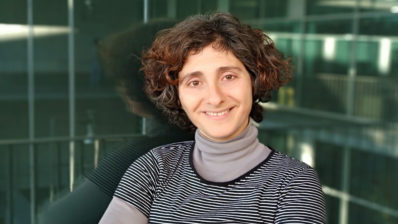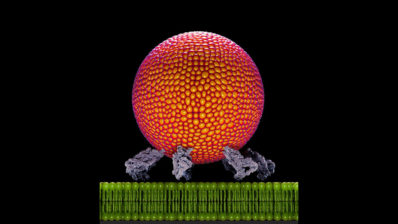In order to be functional, proteins need a specific physical structure, which is modulated when they interact with each other. This apparently simple idea has intrigued the scientific community for years, during which many scientists have been trying to learn to predict a protein’ structures based on its sequence.
In the fourth episode of the second season of ‘La mare de la ciència’, the Catalan podcast of the PRBB, we will discover how ‘protein folding‘ is studied with Baldo Oliva, head of the structural bioinformatics group at GRIB, a program shared between the Hospital del Mar Medical Research Institute (IMIM) and the Department of Medicine and Life Sciences (MELIS-UPF).
Knowing the structure of proteins allows us to know what their active domain is or how a mutation can affect their function. But it is also a magnificent tool for designing new molecules to make materials or drugs.
The study of protein structure is based on theoretical experiments using computer programs and artificial intelligence tools to compare different sequences and folding patterns. But, curiously, this frontier research coexists with theories as old as Newton’s laws that help explain the motion of molecules.
And then, in the summer of 2021, Alpha Fold and RoseTTA Fold, two open-access softwares for protein structure prediction, were published. Both have revolutionized the field of research and have been classified by Science magazine as the discovery of the year. Despite having limitations, these programs have already provided an answer to one of the oldest enigmas in biomedicine…
Do you want to know more? Press play!







